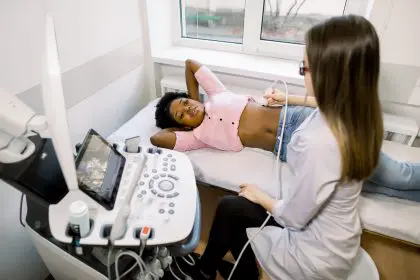Access to quality health care remains a significant issue for women, especially within marginalized communities. Women face challenges such as long travel distances to clinics, limited availability of health care professionals and systemic inequities in medical practices. These obstacles disproportionately impact Black women, who often experience higher rates of adverse health outcomes due to factors like systemic racism, implicit biases and insufficient resources.
Addressing these disparities demands a comprehensive approach that includes preventive care, patient education and systemic reforms. By tackling these issues head-on, the health care system can move closer to achieving equity.
Addressing critical health disparities
For many women in underresourced areas, accessing health care involves overcoming logistical and systemic barriers. Geographical obstacles often force women to travel long distances to reach clinics, highlighting the uneven distribution of medical facilities. These physical barriers are compounded by systemic biases in medical practice, which frequently result in poorer outcomes for Black women.
One stark example of this disparity is maternal mortality. Black women face maternal death rates nearly three times higher than their white counterparts, with many of these deaths preventable through timely and adequate medical care. Conditions like preeclampsia — a severe pregnancy complication — can often be addressed with early intervention, such as preconception counseling and routine checkups.
Health care providers are increasingly emphasizing proactive approaches, such as prescribing low-dose aspirin to at-risk patients to prevent complications during pregnancy. These measures prioritize prevention over reaction, offering a path toward safer maternal outcomes.
Vitamin D deficiency
An estimated 80 percent of women in marginalized communities suffer from vitamin D deficiency, a condition linked to a host of health concerns. Among these is the development of uterine fibroids, which affect up to 90 percent of Black women by the age of 80. Fibroids can cause debilitating symptoms, including pain, heavy menstrual bleeding and fertility challenges.
Routine screenings and dietary interventions can help combat this deficiency. Health care providers play a crucial role in encouraging women to adopt balanced diets rich in vitamin D and calcium. For those with significant deficiencies, targeted supplementation provides an effective solution.
The role of vitamin D in overall and reproductive health underscores the importance of personalized care plans. Regular checkups enable health care providers to identify and address nutrient deficiencies early, preventing complications and promoting better health outcomes.
Vaccinations and screenings
Prevention is a cornerstone of equitable healthcare. Vaccines like the HPV vaccine — now available to individuals up to age 45 — have revolutionized the fight against cervical cancer. By encouraging HPV vaccination, health care providers empower women to protect themselves from one of the leading causes of cancer mortality.
Routine screenings — including Pap smears and mammograms — are equally critical. Early detection of conditions like cervical and breast cancer significantly improves treatment outcomes. Health care systems must prioritize making these screenings accessible to all women, regardless of their location or socioeconomic status.
Bridging the trust gap in healthcare
For many Black women, historical and personal experiences of neglect and mistreatment in medical settings have fostered deep mistrust of the health care system. Bridging this trust gap requires more than medical expertise; it demands empathy, transparency and a commitment to patient-centered care.
Health care providers can build trust by fostering open and judgment-free communication. Encouraging patients to come prepared with questions and concerns empowers them to take an active role in their health. Documenting symptoms — particularly in areas like menstrual health — enables more accurate diagnoses and tailored treatment plans.
Addressing mistrust also involves diversifying the medical workforce. Representation matters; patients are more likely to feel understood and respected when they see providers who share their cultural background and experiences.
Proactive care for long-term health
Equipping women with knowledge about their health is key to improving outcomes. Education about preconception care, routine screenings and lifestyle changes — such as adopting nutrient-rich diets and engaging in regular physical activity — helps women take charge of their well-being.
Proactive care extends beyond the clinic. Health care providers must work with community organizations to offer workshops, resources and support networks that empower women to make informed decisions about their health. By addressing both immediate and long-term needs, proactive care creates a foundation for healthier lives.
Achieving equity in health care
Addressing health care disparities requires a multifaceted approach that combines systemic reforms with individual empowerment. Preventive measures — such as managing vitamin deficiencies, advocating for vaccinations and promoting routine screenings — are vital steps toward reducing health disparities.
At the same time, fostering trust and open communication between patients and providers is essential for breaking down barriers to care. By prioritizing equity, H, ensuring that every woman has access to the quality care she deserves.
Through these efforts, the medical community can pave the way for healthier generations, demonstrating that meaningful change is not only possible but essential.














